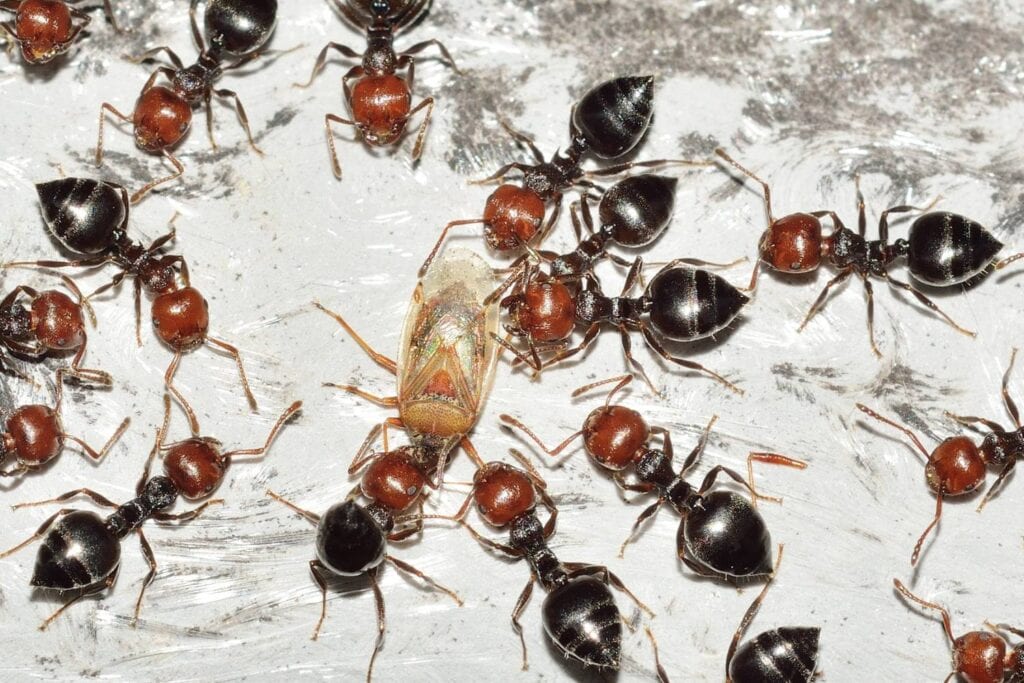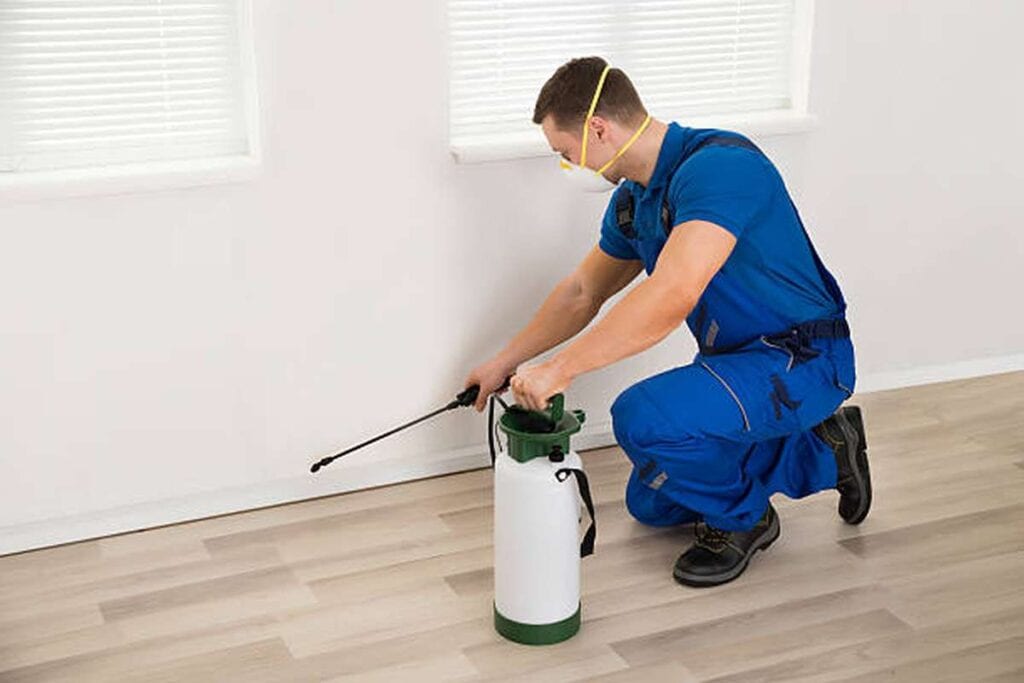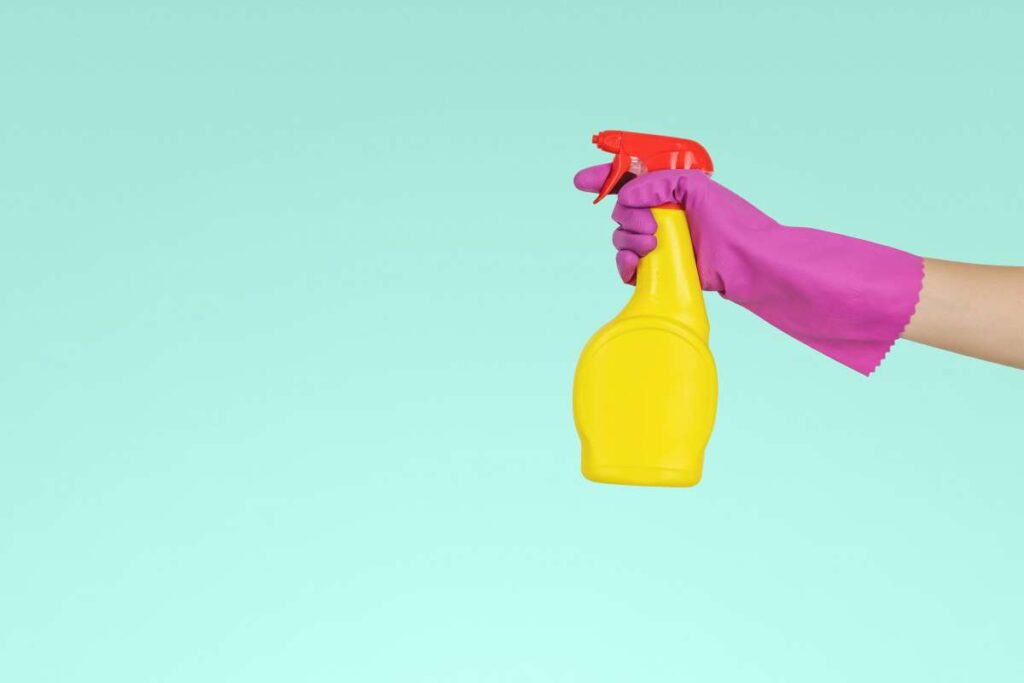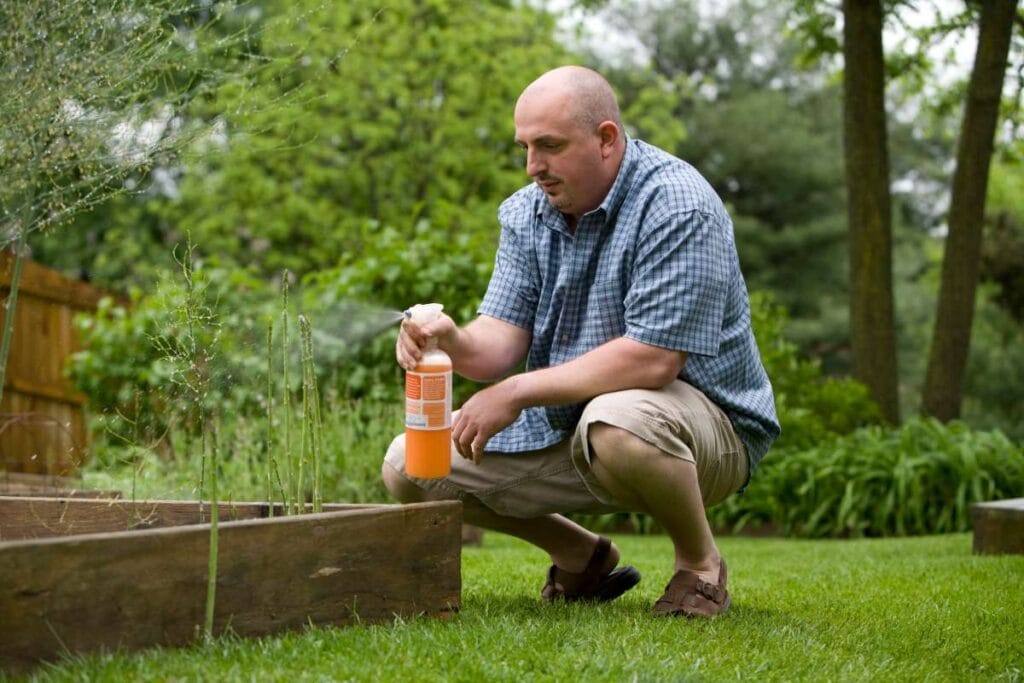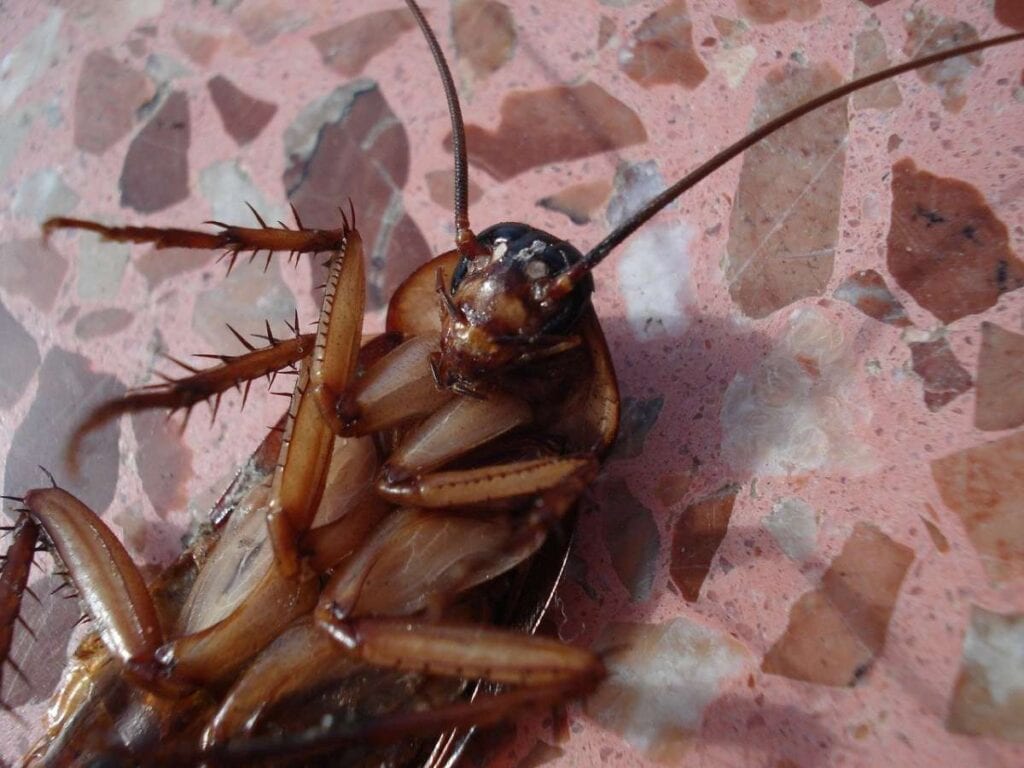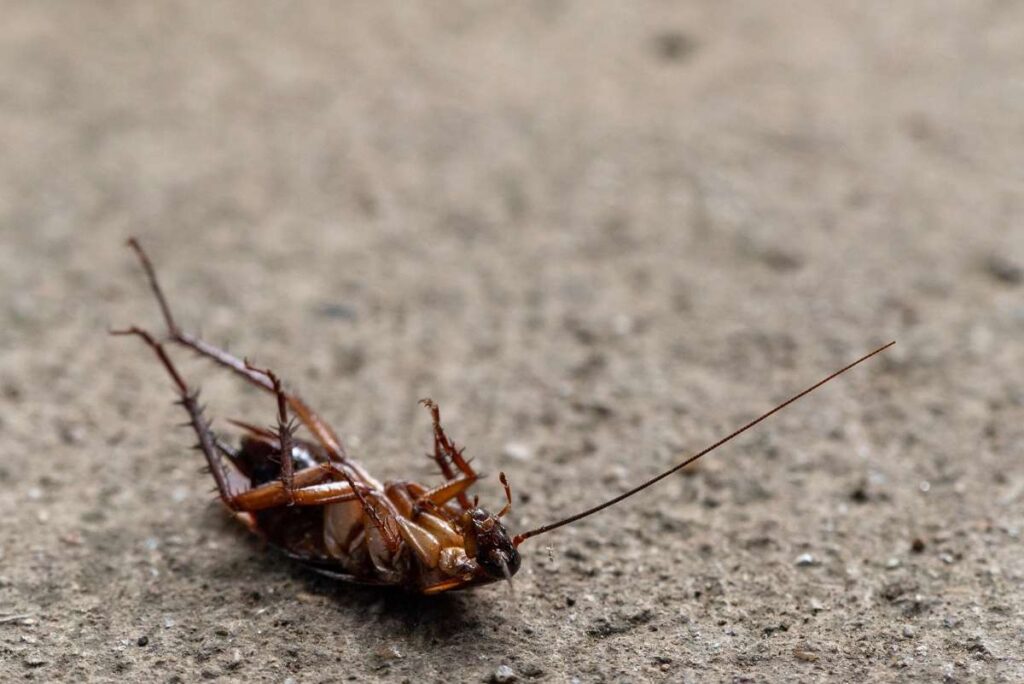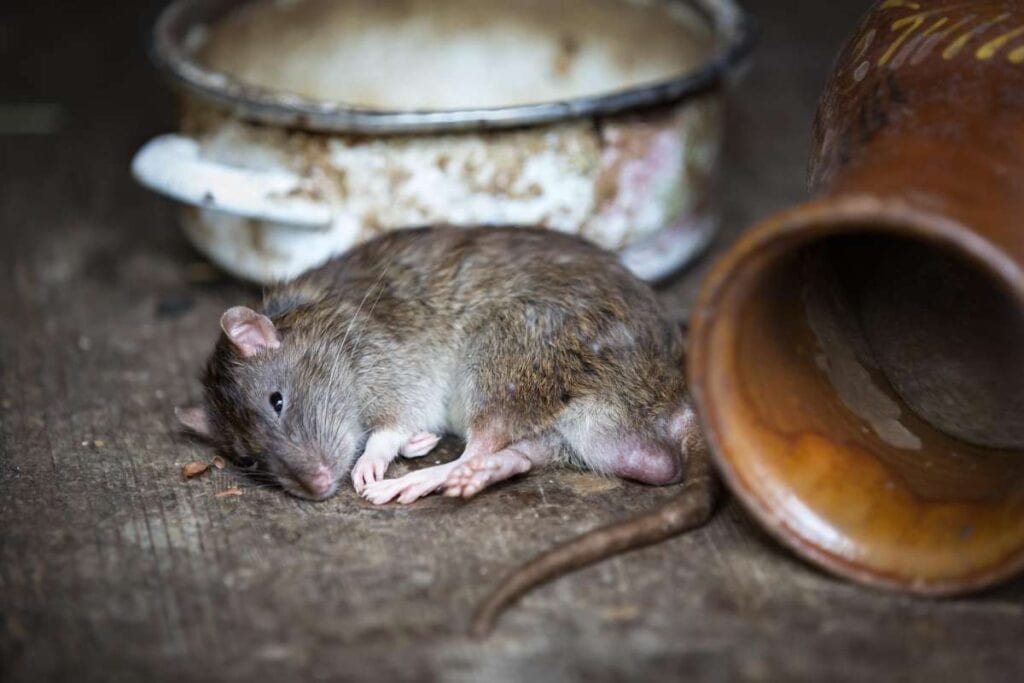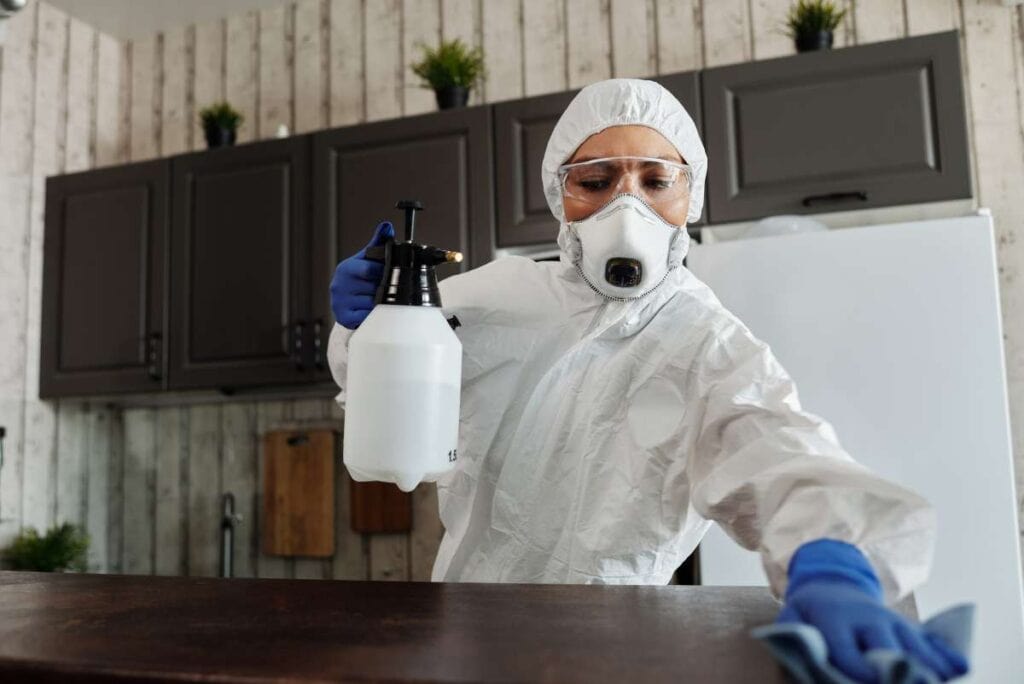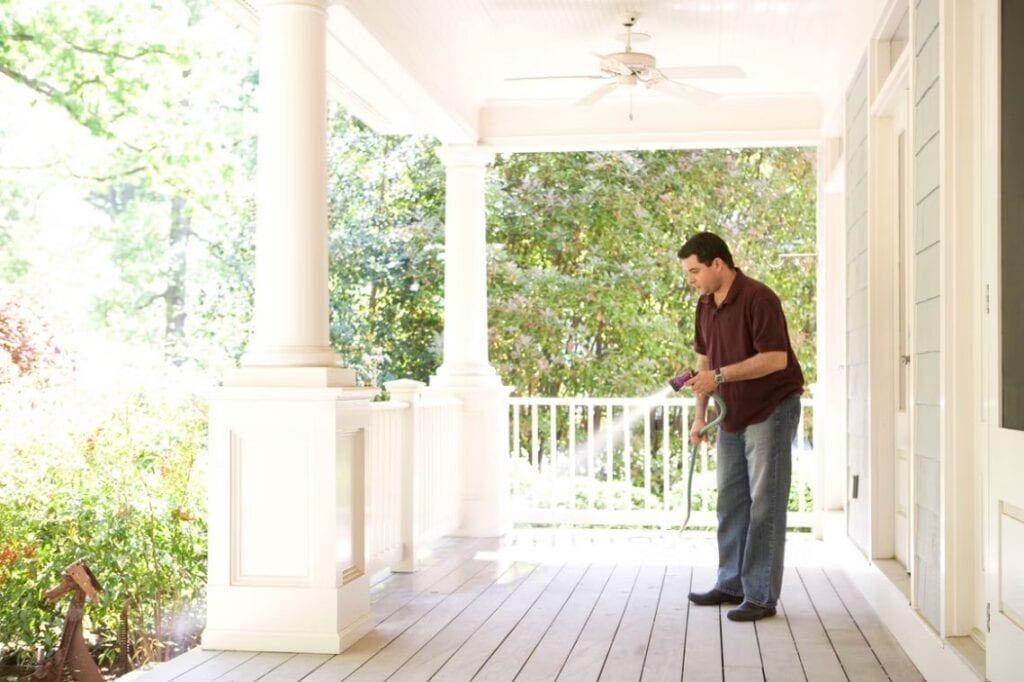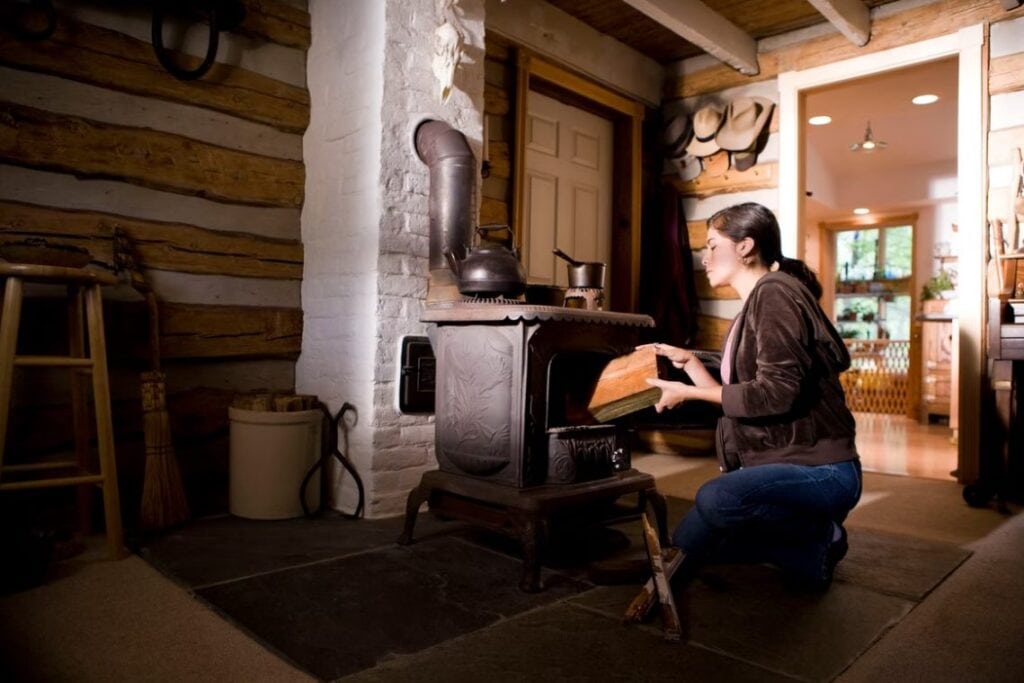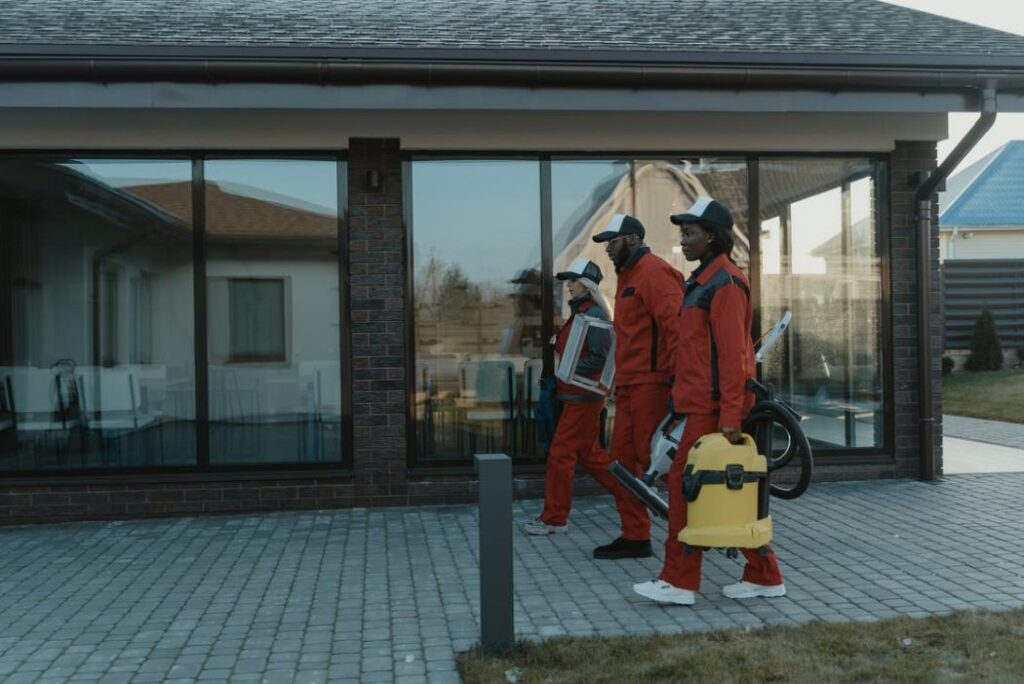Ants love dark, damp places that provide food and water, so the restroom is perfect for them to make their home. An anthill in your bathroom? You need to keep it clean. It may be necessary to hire a professional exterminator to eradicate the infestation. However, many common household items can serve as ant killers.
Discovering ants in your bathroom for the first time can be perplexing. Do you know that ants follow scents of food? You're not exactly munching on a messy sandwich while seated there.
As anyone whose picnic has ever been wrecked by ants will attest, the common perception that ants will swarm human food is half accurate. What we wouldn't normally consider food is quite a bit of what ants consume.
The hassle of eliminating ant colonies in your restroom is no picnic. These little annoyances might emerge out of nowhere and invade your personal space. But have no fear! In this comprehensive guide, we'll explore various methods to eliminate ants in the bathroom and keep them out for good. We have a wide range of options, including treatments and natural remedies.
Why Do I Have Ants In The Bathroom?
Without fail, ants, the archetypal unwelcome picnic visitors, can be found in an assortment of different settings as well, most notably in cases involving edible items. Therefore, seeing an ant in your kitchen or any other area where food is stored should not be shocking.
However, ants? Why on earth would they choose your bathroom as their home? It is easier to believe that ants would show much interest in the area around your bathroom fixtures (shower, toilet, and sink) if you're making a lot of crumbs while eating sandwiches there.
To keep your entire home free of pests, one of the first and most crucial things you can do is to ensure that your bathroom is kept clean and disinfected. On the other hand, a few elements are included in bathrooms that you can only partially ignore if you use your bathroom.

Odours
Ants may be attracted to a variety of smells that come from the restroom. We find it repulsive when hair becomes stuck in our bathtub or shower drain, yet it is a perfect spot for water to pool. The anthill is a prime food source, and the drain's aroma draws ants in droves. You might not be able to detect its scent, but ants will.
Moisture
No matter how careful you are, a bathroom will always get some water on it. As the name suggests, this is the designated area for washing one's hands, flushing one's toilet, and having baths or showers. Moreover, ants may find food in decaying wood and other materials brought about by undetected water leaks.
While fixing dripping faucets and mopping up spills are certainly important, it's rather unlikely that you'll be able to keep your bathroom entirely dry.
Skin Or Hair Cells
Visiting the restroom to wash your hands, brush your teeth, shower, or comb your hair could attract ants. Despite how repulsive it may sound, ants will be drawn to any chemical smells emanating from your drain, bathroom, or fermented hair. For that reason, anthills can be found in many homes, and bathrooms are among the most popular.
How To Get Rid Of An Ant Infestation In Your Bathroom.
Borax
Borax is a popular chemical in many household products, including mouthwash, toothpaste, and creams. But ants aren't the only ones who should be wary; it harms their digestive tracts and external skeletons. Be creative and leave a mixture of honey, peanut butter, or jelly along the ant tracks.
Spray And Wipe
When removing ant trails from your bathroom, the most suitable method is to use a spray bottle filled with bleach and water. Another potential drawback of using this procedure is that it could result in a few ants crawling on you while doing it.
Another option is using an aerosol spray specifically for indoor usage to eliminate foraging ants. The danger of being bitten can be lessened by eliminating the live foragers beforehand. Be cautious, nevertheless, not to combine substances. The ant spray's insecticides and the bleach solution's chlorine do not mix nicely. To remove any remaining pesticide, use gentle, soapy water instead.
Granular Baits
Using granular baits is another top-secret method that exterminators utilise to control ant problems in bathrooms. The secret is to target the specific species of ant you're dealing with. Applying only small amounts is also crucial.
For instance, you can scatter 1/4 ounce of granular bait below the toilet to eliminate ants. Instead of heading straight towards the room's plumbing, the delicious scent entices the workers. After the worker ants poison the queen ant, the colony gradually dies.
One major benefit of granular ant bait is that it continues to be effective even after getting wet. And it's effective even when used in alone sink areas where pipes enter the floorboards.
Essential Oils
Essential oils such as eucalyptus, citrus, and cinnamon are wonderful ways to freshen up your restroom while also warding off ants, as they are highly attuned to strong scents. A concoction of tea tree oil, pepper, peppermint oil, and water can be soaked into cotton balls and placed near ant trails to ward them off.
You can get ant killer sprays made of essential oils and use them to rid your bathroom of pesky ants. They are available in a variety of scents, including:
- Citronella
- Tea tree oil
- Lemongrass
- Eucalyptus
- Peppermint oil
Try using one of these all-natural repellents to keep ants at bay. Also, you can use them instead of insecticides without worrying about the chemicals they contain.
Bait Stations
A common component of bait stations is a plastic disc covering a solid ant killer material. Typically, two holes are cut into the surface so the worker ant can enter and feed unimpeded on the bait. The colony perishes when it returns the substance to the queen.
Ants like the Pharaoh ant, which subsist mostly on nectar from plants, are best lured with a sugar bait mixture. These items are usually packaged in a little plastic tube or vile and can be set and activated quickly. Typically, they have a three-month lifespan, although they may dry out in drier regions.
Fumigation
The general population has access to several aerosol foggers. Although they occur in different forms, cypermethrin, an active ingredient, is always present.
Because of these foggers' power, you may need to vacate the area for as long as two hours following treatment. Furthermore, cleanup is necessary to eliminate any remaining oily residue and dead ants.
If ants infest your entire bathroom, fogging is the way to go. In that case, it could be your sole practical choice. If not, use gentler methods to get rid of them.
Vacuuming
Using a vacuum is a well-kept secret for ant control; it works wonders in the bathroom and bedroom. You can use them to remove ants from mats and carpets. You may easily remove them by connecting a vacuum hose to a crevice tool and sucking them up. To get the work done, utilise a vacuum that is powerful enough.
In the case that you are concerned about ants escaping, the following are some of the measures that you may take to prevent this from occurring:
- Empty the tank right away. Just after you've vacuumed up all the ants, empty the tank outside or into a zippered bag. By doing so, you may be sure that no live insects will be released into other parts of your house.
- Put water in the tank's base. You can use this to catch ants. Another option is to use a few drops of bleach to kill the ants before they can get away.
- Boric acid dust is used to line the tank's bottom. You can kill the ants before you empty the vacuum tank by placing some boric acid at the bottom.
Bait Gels
An additional effective strategy for ant control is the use of bait gels. They make it simple to apply a little ant bait at regular intervals, which increases the likelihood of seeing results quickly.
Squeeze a tiny quantity of bait gel into nooks and crannies using the applicator tip.
Examples include:
- Pipe Entry Points
- Loose baseboards
- Small gaps in the floorboards
- The distance from the floor to the base of the toilet
Remember that different ant species have different feeding preferences; thus, using the appropriate bait gel for each species you are treating is critical.
Tips For Preventing Ants In Your Bathroom
Clean Regularly
The sink should be rinsed after each use, and the vanity should be wiped daily. Once a week, give the tub and shower a good scrub. Thoroughly clean the bathroom once a month, being sure to get all the hard-to-reach places, such as the floors of the tubs and showers and the area behind the toilet.
If you notice ants on your floor, sweep or vacuum them daily (or at least every other day) to keep them at bay. The floor should be mopped once a week.
Sanitation Measures
Removing freestanding water regions in your bathroom by correcting plumbing leaks is a fantastic initial step in controlling ants in your bathroom. Additionally, it prevents wood decay, which is a condition that might attract some species of ants.
Make Sure The Drainage Is Adequate.
Your bathroom, undoubtedly, may store a great deal of moisture. Maintaining a functional plumbing system in your bathroom is an absolute must. Ponds or pools of water that remain stagnant for an extended time can be lessened with its assistance. Promptly resolve all of your drainage issues.
An affordable and natural method for keeping drains clean is to pour a half cup of vinegar and baking soda down the drain. Rinse the mixture with hot water after 10 minutes. This all-natural home treatment can unclog your drains and pipes from grease and other gunk.
Keep Things Dry
Use a hand towel to pat the surface dry after the shower, sink, or bath. Keep your floors dry by often washing machine-washable bath mats and avoiding puddles.
Dehumidify The Bathroom
Ants and other housebugs find the kitchen and bathroom the most welcoming places. Stopping their water supply is the first order of business. And to do that, you must fix the bathroom's plumbing so it no longer leaks or drips. In addition, you should check that there is no standing water. In addition, there is no water or grime in the bathroom sinks.
After you leave the shower, open the windows to let fresh air in. The bathroom walls and floor can be protected against standing water puddles caused by steam buildup with the help of an effective ventilation system.
Repair Cracks And Seals.
A potential entry point for ants in a tub or shower is any cracks or gaps in the tilework. When you find cracked or broken tiles, replace them and apply new sealant or caulk as necessary.
Reproducing damaged or cracked tiles would be best to keep ants out. Remember that ant nests are ideal for these damp, small areas. Another way to stop the ant colonies from spreading is to clean the bathroom regularly.
Properly Store Personal Care Items.
Prevent food spoilage by ensuring that personal care items are stored correctly. Never leave a toothpaste cap on a used tube, and always double-check that all your cosmetics and personal care items have a secure lid. Instead of using a dish to hold bar soap, try an enclosed container with holes for drainage. Keep the dispenser spout clean after each use if you keep pump bottles of lotion or hand soap by the sink.
Practice Drain Care
It is important to clean the drains in your shower, bathtub, and sink regularly. Calling a plumber to inspect and unclog the drain is something you should do if you find that water is draining more slowly.
Follow Their Trail
Ants leave a distinct trail because they adhere to a specific pattern. You can determine their origin by keeping tabs on them. Typically, it enters between the spaces between the tiles and the walls.
That is why it is crucial to replace any caulk that is old or broken. Make sure that every crack is securely sealed. If you seal the cracks, the ants won't be able to get in.
Call The Professionals.
Dealing with ants in the restroom can be challenging when you're alone. A professional exterminator can find every inch of an infestation and any possible access points you might overlook. If you have ants in your bathroom, they know what to do and have the equipment to remove them.
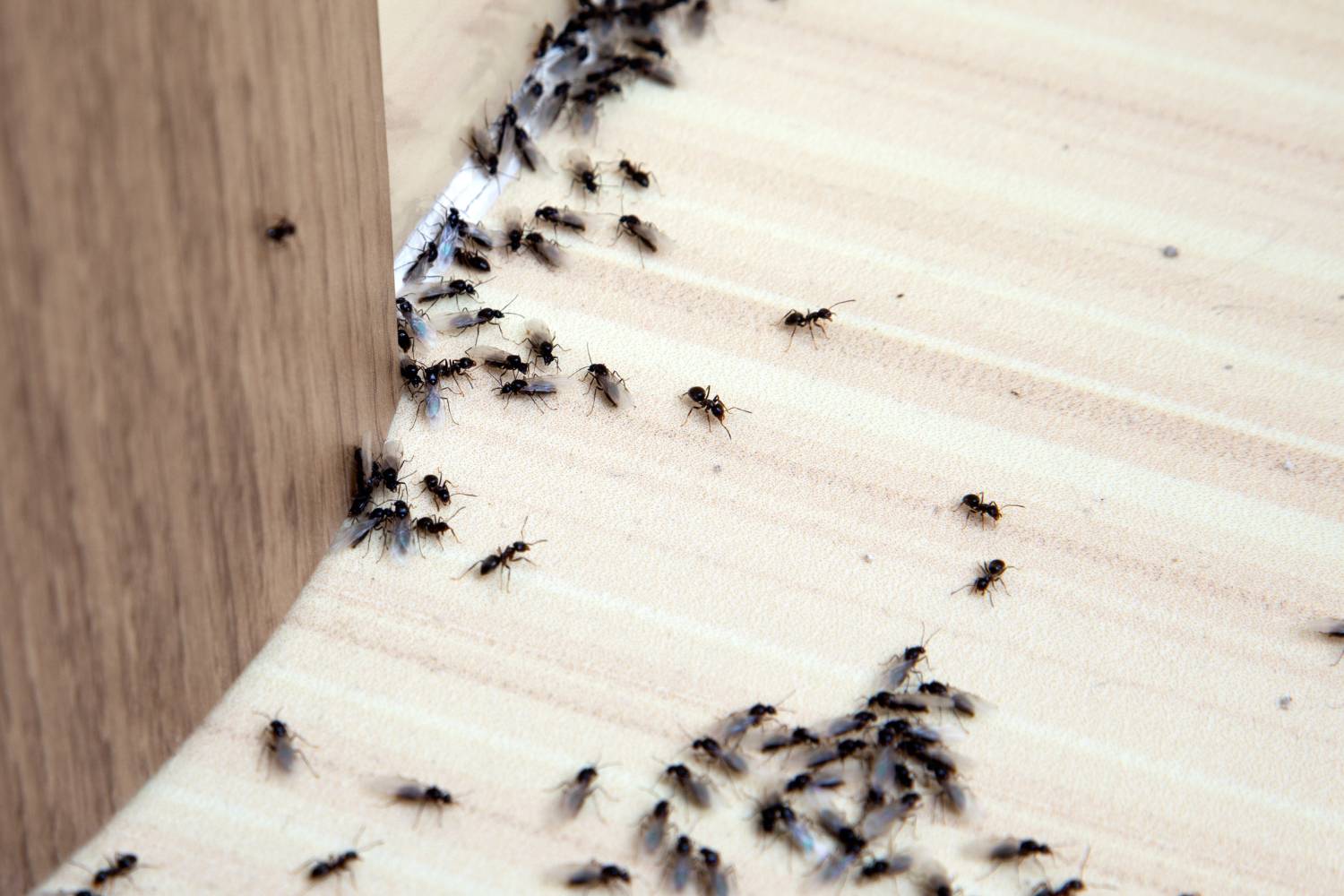
How Can Ants Be Removed From The Bathroom Drain?
If your bathroom drain becomes clogged with hair or stagnant water, ants may be able to climb up or into the drain. An ant infestation can be removed by pouring a solution of baking soda and white vinegar into the drain in quantities equal.
In addition to foaming and producing carbon dioxide, the mixture will unclog the drain and eliminate ants. After the foaming has subsided, run some hot water down the drain to remove any residue that may still be there.
Conclusion
The bathroom is a great spot for ants to live since they are drawn to damp, dark areas with food and water. They can be located in a variety of places, such as bathrooms and kitchens, but the bathroom is frequently the one that gets the most traffic.
Ants are drawn to dampness, odours, and chemical scents from bathrooms; this is why you may see anthills growing on decaying wood or hair lodged in drains. Use borax, a popular chemical found in home items, or place a mixture of honey, peanut butter, or jelly along ant trails to eradicate an infestation.
Use bleach and water to spray and wipe off the bathroom, but be careful not to mix anything together because the chlorine in the bleach solution and the insecticides in the ant spray don't mix well. Use mild, soapy water to get rid of any pesticide that could still be present.
In conclusion, getting rid of ants in the bathroom is a difficult chore that calls for natural solutions, avoiding odours, and paying close attention to hygiene. You can maintain a pest-free home and have a healthier, more pleasurable experience by following these tips.
Targeting particular ant species, granular baits are a common solution for ant infestations in bathrooms. Even after getting wet, applying modest amounts of granular bait in isolated sink areas can still be successful. You can use essential oils, such as cinnamon, citrous, and eucalyptus, to keep ants away and freshen the space.
Use essential oil-based ant repellent sprays to get rid of bothersome ants in the bathroom. Bait stations are plastic discs coated in solid ant killing substance that have holes drilled into the surface so that worker ants can pass through and consume the bait without hindrance. Pharaoh ants, who feed on plant nectar, respond best to sugar bait mixes.
Strong methods like fumigation may require you to leave your home for up to two hours following treatment. Another useful technique for getting rid of ants from carpets and mats is vacuuming. Empty the tank right away, fill it with water, apply bleach, or coat the bottom of the tank with boric acid dust to keep ants from fleeing. Another useful tactic is the use of bait gels, which enable frequent application of bait at particular crevices and nooks. Don't forget to use the proper bait gel for each species you are working with.
Cleaning your bathroom on a regular basis is essential for ant management. Wipe the floor once a week and rinse the vanity and sink every day. Clean the bathroom thoroughly once a month, paying special attention to areas that are difficult to reach, like the flooring and the space behind the toilet. Vacuum or clean your floor every day if you see ants there. One time a week, mop the floor.
Fixing plumbing leaks, making sure there is enough drainage, maintaining dry surfaces, dehumidifying the bathroom, and caulking and sealing are examples of sanitation practices. If necessary, replace broken or cracked tiles and apply fresh caulk or sealant. When storing personal hygiene products, make sure they have drainage holes and a tight-fitting cover.
Take good care of your drains by routinely cleaning the sink, bathtub, and shower, and contacting a plumber if the water drains slowly. Examine the ant tracks and replace any cracked or worn caulk to follow the ants' paths. Stop ants from entering crevices by sealing them.
To locate and get rid of ants in your bathroom, contact a licenced exterminator. Pouring baking soda and white vinegar down the bathroom drain will cause them to foam and release carbon dioxide. Then, run hot water down the drain to remove any remaining residue. This will eradicate ants from the drain.
Content Summary
- Ants are attracted to bathrooms because they offer dark, damp environments with potential food and water sources.
- Keeping your bathroom clean is essential to prevent and manage ant infestations.
- Professional exterminators might be necessary for severe ant problems, but many household items can effectively kill ants.
- Ants in the bathroom might seem odd since it's not a typical eating area, but they're attracted to scents and moisture.
- The common belief that ants only swarm human food is only partly true; they're interested in many substances we wouldn't consider food.
- Eliminating ants from the bathroom requires a comprehensive approach, including both treatments and natural remedies.
- Ants can be found in many environments, especially where there's access to food, making bathrooms unexpected but common sites.
- Bathrooms attract ants due to odours, moisture, and the presence of skin or hair cells.
- Hair stuck in drains can attract ants due to pooled water and the odour, serving as a food source.
- Ants are drawn to the chemical smells from bathroom drains, making them a common site for infestations.
- Borax, a common household chemical, is effective against ants when mixed with sweet substances.
- Spraying a bleach and water mixture can help remove ant trails but requires caution to avoid ant bites.
- Aerosol sprays designed for indoor use can target foraging ants, reducing the risk of bites.
- Granular baits specifically designed for ants can be effective, especially when targeting the species in your bathroom.
- Essential oils like eucalyptus, citrus, and cinnamon can deter ants due to their strong scents.
- Bait stations are effective for controlling ants by allowing them to feed on poisoned bait and return it to their colony.
- Fumigation with aerosol foggers containing cypermethrin can be a powerful solution for widespread infestations.
- Vacuuming can be an effective, immediate method to remove ants from surfaces like mats and carpets.
- Bait gels are useful for treating specific areas where ants are entering or gathering.
- Regular cleaning and sanitation of the bathroom are crucial steps in preventing ant infestations.
- Fixing plumbing leaks and ensuring proper drainage can help reduce ant-attracting moisture.
- Keeping the bathroom dry and using dehumidifiers can deter ants by removing their water source.
- Repairing cracks and sealing gaps in tilework and fixtures can prevent ants from entering.
- Storing personal care items properly and keeping areas free of food residues can discourage ants.
- Regular drain care and maintenance can prevent ants from being attracted to residue and scents.
- Tracking ant trails can help identify entry points and areas that need sealing or treatment.
- Professional exterminators can offer thorough solutions for ant infestations in bathrooms.
- Pouring a baking soda and vinegar solution down drains can clear clogs and deter ants.
- Ensuring that all spills and water are cleaned up promptly can prevent attracting ants.
- Using natural repellents like vinegar or citrus peels can offer a safer alternative to chemicals.
- Monitoring for water leaks and fixing them quickly can reduce ant attractions.
- Emptying vacuum tanks immediately after use can prevent ants from escaping back into the home.
- Using boric acid in vacuum tanks can kill ants effectively before disposal.
- Applying caulk to seal cracks and openings can block ant entry points.
- Keeping bathroom fixtures and surfaces dry will make the environment less appealing to ants.
- Ventilating the bathroom properly after showers can reduce humidity and moisture.
- Regularly checking for and replacing damaged tiles can remove potential ant nesting sites.
- Implementing storage solutions that keep personal care items dry and covered can deter ants.
- Cleaning bathroom drains regularly with natural solutions can keep them free of ant-attracting residues.
- Following the trail of ants can lead to discovering their entry points for targeted treatment.
- Ensuring the bathroom is well-ventilated can prevent the buildup of moist conditions that ants love.
- Using granular baits in strategic locations can effectively control ant populations.
- Combining household cleaning with targeted ant treatments can provide a comprehensive ant control strategy.
- Consulting with professionals can provide insights into specific ant species and tailored solutions.
- Prevention is key; maintaining a clean, dry, and sealed bathroom can significantly reduce ant problems.
- Using natural deterrents and remedies can be a safe and effective way to control ants.
- Addressing the root causes of ant attractions, such as moisture and food residues, is crucial.
- Regular inspections for leaks and cracks can help identify potential ant issues early.
- Educating household members on the importance of cleanliness and moisture control can aid in ant prevention.
- Adopting a proactive approach to bathroom maintenance can keep your space ant-free and comfortable.
Frequently Asked Questions
While most household ants are nuisance pests, some species, like carpenter ants, can cause structural damage by tunnelling through the wood. Additionally, ants may contaminate food and surfaces with bacteria.
While bleach may temporarily deter ants due to its strong odour, it's not a long-term solution for ant control. Moreover, if ingested by pets or humans, bleach can be harmful and may damage surfaces.
The time required to eliminate an ant infestation depends on various factors, including the colony's size, the ant species involved, and the chosen treatment method. Patience and consistency are key during the eradication process.
Several eco-friendly ant control options include diatomaceous earth, boric acid baits, and vinegar solutions. These methods are safe for pets and children and pose minimal environmental impact.
Yes, several non-toxic methods can help eliminate ants from your bathroom. Diatomaceous earth, a natural powder from fossilised algae, can be sprinkled along ant trails and entry points to dehydrate and kill ants. Additionally, sealing cracks and crevices with caulk and keeping surfaces clean and dry can help prevent ant infestations without toxic chemicals.

